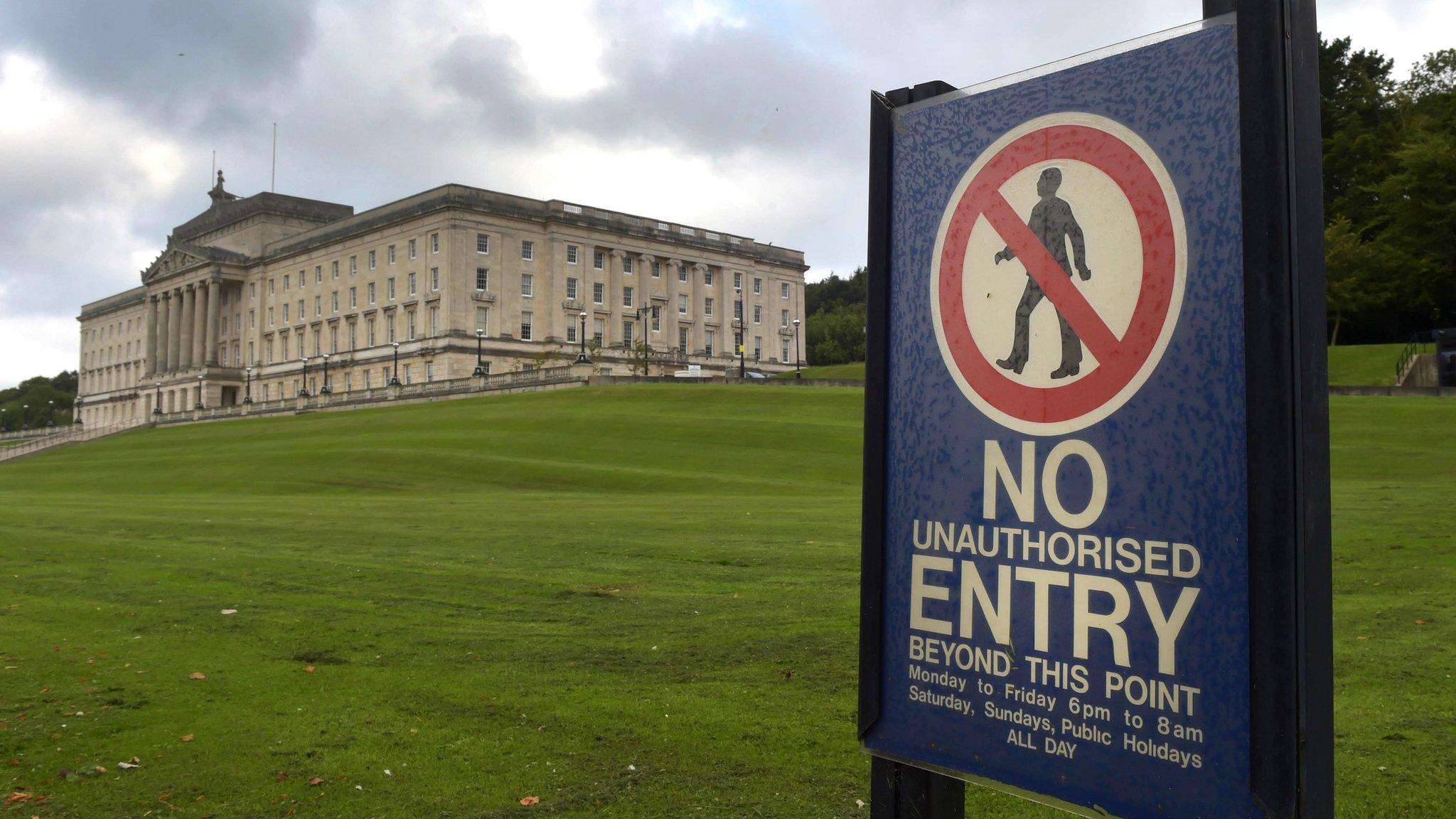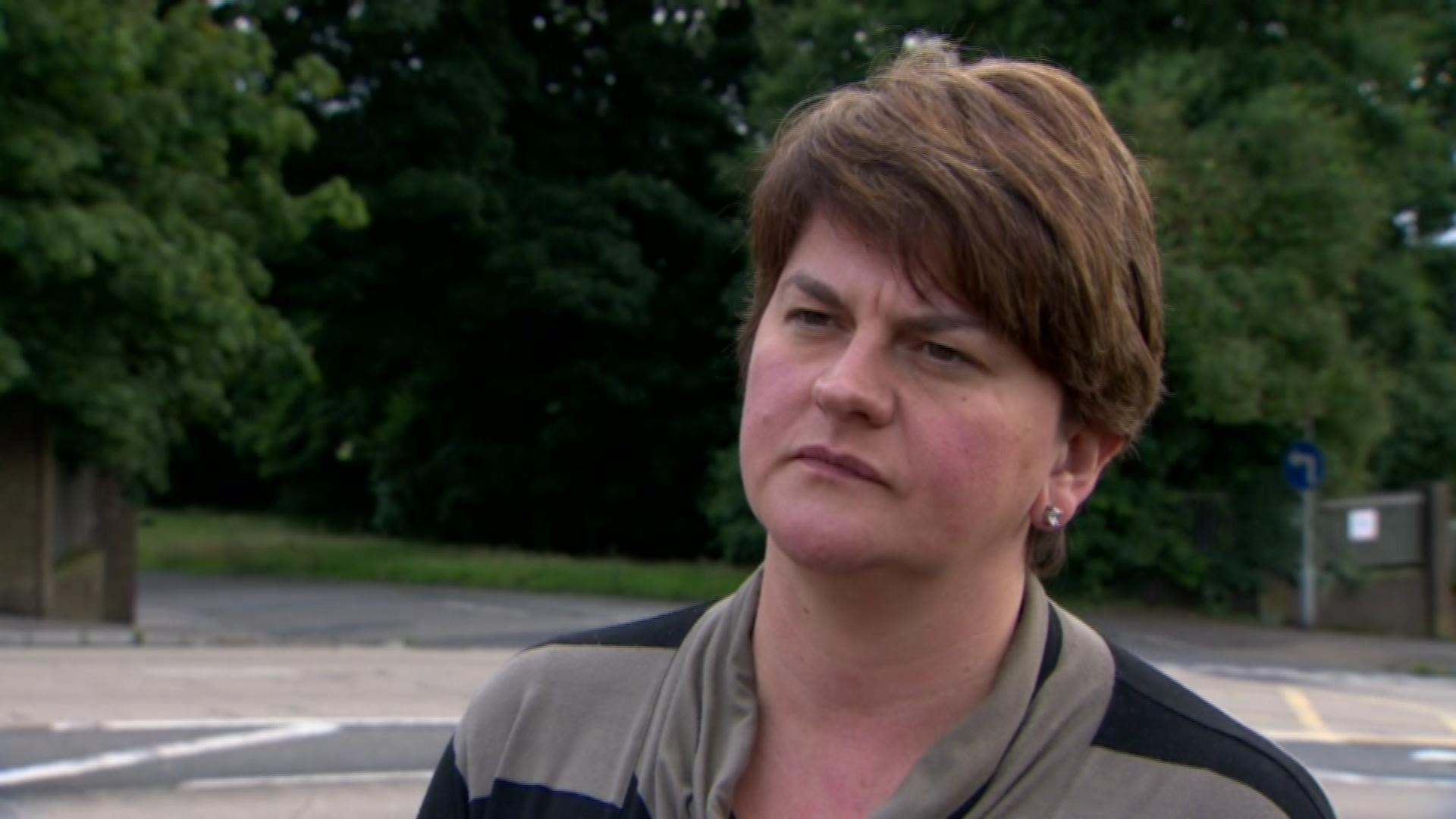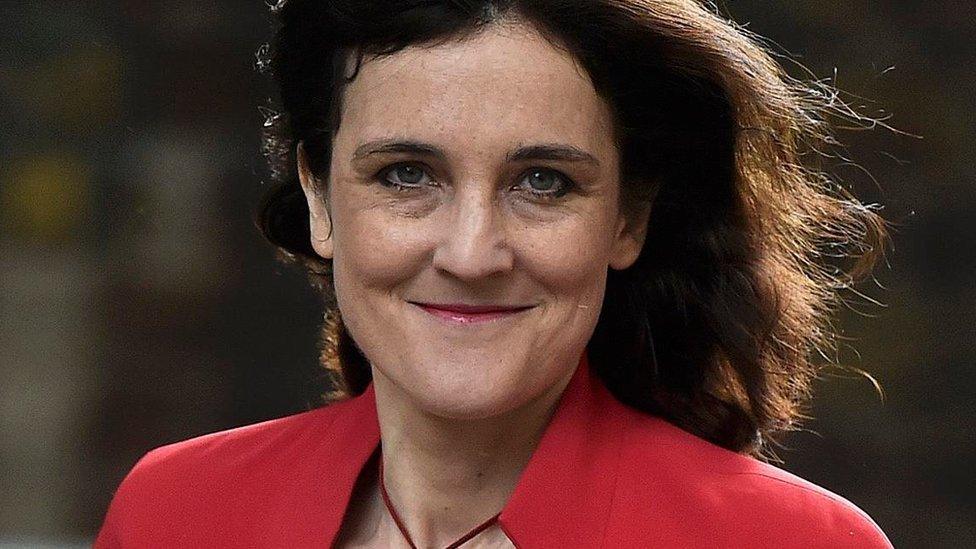DUP says no more NI Executive meetings unless 'exceptional circumstances'
- Published
Peter Robinson, speaking at Stormont, said there would be no further meetings of the Northern Ireland Executive unless in "exceptional circumstances"
The Democratic Unionist Party (DUP) has said there will be no further meetings of the Northern Ireland Executive unless in "exceptional circumstances".
First Minister and DUP leader Peter Robinson made the announcement as the NI assembly returned on Monday.
Mr Robinson said the DUP's ministers would focus on talks to try to resolve the crisis that are due to begin on Tuesday.
Stormont was plunged into crisis after the murder of Kevin McGuigan Sr.
The police have said they believe IRA members were involved in his murder.
But they added there is no evidence at this stage that the killing was sanctioned by the organisation.
Sinn Féin rejected the police assessment and said the IRA had "gone" and was not "coming back".
However, Mr Robinson said the DUP was not "prepared to continue as if nothing had happened".

Analysis Chris Page BBC NI political correspondent
The DUP announced their decision in Stormont's Great Hall just as the speaker called MLAs to the assembly chamber for the first time this term.
The assembly will continue to function - but its biggest party have decided to take action at the executive level.
Stormont ministers will not hold their regular executive meetings, unless the DUP deem there are "exceptional circumstances".
And if the talks don't lead to a "satisfactory outcome", the DUP say their ministers will resign - triggering an election and then a devolution deep-freeze.

"A man has been murdered at the hands of those linked to a party of government. This is unacceptable," Mr Robinson said.
Last resort
He said if the DUP was not satisfied that the parties were committed to finding a resolution, they would initiate further steps.
The DUP leader said as a last resort ministerial resignations would follow.

Sinn Féin MLA Conor Murphy said if the DUP chose to resign, there was "nothing we can do about that"
Mr Robinson said that any election which followed would not see a return to the present assembly arrangements as the DUP would not nominate a first minister until a "fundamental and more wide ranging negotiation produced a system that could fully function".

What is the background to the Stormont row?
Stormont's power-sharing government returned in 2007, headed by then Democratic Unionist Party leader Ian Paisley as first minister and Sinn Féin's Martin McGuinness as deputy first minister.
The two men had been bitter enemies for many years, but the decommissioning of IRA weapons in 2005 and Sinn Féin's endorsement of policing in Northern Ireland paved the way for Stormont's return.
In the last assessment by the Independent Monitoring Commission, an official body that monitored paramilitary activity that was wound down in 2010, it said it believed the Provisional IRA had "maintained its political course" and "would continue to do so".
With Northern Ireland's chief constable now saying the Provisional IRA still exists and some of its members were involved in the murder of Kevin McGuigan, renewed focus has been placed on the stability of the institutions at Stormont.

In response, Sinn Féin MLA Conor Murphy said if the DUP chose to resign, there was "nothing we can do about that".
Mandate
"We're not going to allow ourselves to become distracted by the electoral contest that's going on within unionism," he said.

Traditional Unionist Voice (TUV) leader Jim Allister criticised the DUP's actions
"We are mandated to be here to do business.
"It's up to others to explain what effect their actions will have on our ability to deliver collectively for communities."
Traditional Unionist Voice (TUV) leader Jim Allister criticised the DUP's actions.
"An executive that doesn't work, that doesn't deliver, isn't going to meet - big deal, that's it, that's the big DUP response to murder," he said.
"This is an executive that once didn't meet for six months and nobody noticed."
Following the police assessment about Mr McGuigan's murder, the Ulster Unionist Party (UUP) announced that it was withdrawing from the executive.
- Published13 November 2015

- Published7 September 2015

- Published5 September 2015
